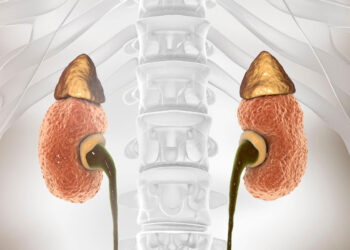TOPLINE:
Adding a designated pharmacist to hematology-oncology teams reduced adverse drug reaction (ADR) rates by 62% (age-adjusted hazard ratio [AHR], 0.38). The pharmacist made 588 recommendations with a 95% implementation rate, identifying 287 medication errors.
METHODOLOGY:
- A parallel randomized clinical trial conducted from July 2020 to October 2022 included 182 patients randomly assigned in a 1:1 ratio to receive comprehensive pharmacist intervention or standard care.
- Participants were monitored over a 4-month intervention period and 1 month afterward, with the pharmacist evaluating treatments, providing medication counseling, and making recommendations to physicians in the intervention group.
- Research took place in the hematology-oncology unit of a medical center owned by Clalit Health Services, with two outpatient clinics staffed by 8 hematology-oncologists, 10 nurses, 1 social worker, and 1 half-time pharmacist.
- Unrelated pharmacologist physicians determined which recommendations were medication errors and assessed their severity levels using the Harm Associated with Medication Error Classification.
TAKEAWAY:
- The intervention group demonstrated lower ADR rates (AHR, 0.38; 95% CI, 0.23-0.65; P < .001) for at least one ADR and (AHR, 0.25; 95% CI, 0.09-0.67; P = .006) for at least one moderate or severe ADR.
- The designated pharmacist made 588 recommendations for the intervention group, with a 95% implementation rate, identifying 287 as medication errors.
- Analysis revealed higher detection of administration errors (incidence rate ratio, 2.61; 95% CI, 1.38-4.92; P = .003) and a higher proportion of potentially serious medication errors (P = .003) in the intervention group.
- Integration of an oncology pharmacist into hematology-oncology clinics reduced ADRs and improved the detection and prevention of potentially serious medication errors.
IN PRACTICE:
“Incorporating oncology-trained pharmacists into hematology-oncology care teams is an effective strategy for reducing ADR rates and enhancing medication safety,” wrote the authors of the study.
SOURCE:
The study was led by Areen Khateeb Alabbasi, PhD, School of Public Health, University of Haifa in Haifa, Israel. It was published online in JCO Oncology Practice.
LIMITATIONS:
The single-center design and focus on hematologic malignancies may limit the generalizability of the findings. Information bias could have affected ADR assessments, as only physician-documented cases were included. The sample size limited statistical power for identifying significant differences in some secondary outcomes, such as emergency department visits and hospitalizations. The study did not include patient-reported outcomes or clinician feedback. Additionally, no financial information was provided to assess the cost-effectiveness of the model.
DISCLOSURES:
Naama Schwartz reported being employed by Medtronic and serving as a lecturer at the University of Haifa, School of Public Health. Schwartz also disclosed being the CEO of Hepacure Pharma, an early-stage biotech company established in September 2024 that develops peptides for fatty liver diseases. Shmuel Klang reported serving in consulting or advisory roles for Novo Nordisk and Novartis.
This article was created using several editorial tools, including AI, as part of the process. Human editors reviewed this content before publication.
Source link : https://www.medscape.com/viewarticle/do-designated-pharmacists-make-cancer-care-safer-2025a1000lc1?src=rss
Author :
Publish date : 2025-08-12 11:28:00
Copyright for syndicated content belongs to the linked Source.











